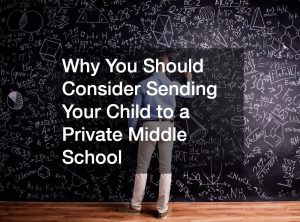The role of a kindergarten teacher is invaluable. Kindergarten teachers provide a safe and nurturing environment for young children transitioning from home to school. They create lesson plans, observe and assess each student’s progress, keep records, communicate with parents and other professionals in early childhood education, and help develop students’ social skills.
For those who want to become kindergarten teachers, this article provides a comprehensive guide for achieving that goal by 2023. It covers all aspects of the process, including educational requirements, certification processes, and avenues for professional development. Read on to learn how to become a teacher for kindergarteners.
- Understanding the Role of a Kindergarten Teacher
- Educational and Certification Requirements
- Gaining Practical Experience
- Researching State-Specific Licensure Requirements
- Completing Teacher Preparation Programs
- Meeting Licensure Exam Requirements
- Applying for Teaching Licensure
- Continuing Professional Development
- Finding Kindergarten Teaching Positions
- Navigating the First Year as a Kindergarten Teacher
- Conclusion
Understanding the Role of a Kindergarten Teacher

Many people think of kindergarten teachers as babysitters, but this job requires far more than that. Kindergarten teachers are responsible for providing a safe and nurturing environment where young children can thrive academically and socially. They create age-appropriate learning experiences to help children adjust to school life while developing their reading, writing, math, science, and social skills.
Kindergarten teachers must have a deep understanding of the impact their role has on early childhood education. They need to be able to create lesson plans that are both fun and educational while meeting each child’s needs individually. Moreover, they should be patient, enthusiastic, and supportive to help create a positive learning environment.
Kindergarten teachers play an important part in the development of children. They not only help them gain the academic skills needed for future success but also assist in building emotional and social abilities. By providing a safe and comfortable place where children can learn how to interact with others, kindergarten teachers are making an invaluable contribution to society.
Educational and Certification Requirements
Aspiring kindergarten teachers must complete at least a bachelor’s degree in early childhood education or a related field. This will give them the necessary knowledge and skills to be effective educators. Additionally, many states and school districts require kindergarten teachers to obtain certification from the National Association for the Education of Young Children (NAEYC).
The benefits of having a formal education in early childhood education cannot be overstated. Formal training gives kindergarten teachers the theoretical knowledge to ensure children learn in a safe and nurturing environment. Moreover, it can help them understand the needs of each child and create lesson plans that meet their needs.
Gaining Practical Experience
Because kindergarten teachers are essential in shaping children’s academic and social development, gaining practical experience is crucial. Student teaching or internships provide an excellent opportunity to apply what one has learned in school while honing their teaching skills in real-world settings. It also gives them valuable insights into different classroom dynamics and learning styles that will be useful when they become full-time kindergarten teachers.
Observing and participating in various classrooms can also help aspiring kindergarten teachers strengthen their problem-solving, teamwork, and communication skills. Furthermore, it allows them to form relationships with other professionals in early childhood education and build meaningful connections with students and families.
Researching State-Specific Licensure Requirements
Another important step in becoming a kindergarten teacher is to research the licensure requirements in your state. Licensure regulations for kindergarten teachers vary by state, so you must understand the specific requirements of the state where you wish to teach.
Researching the requirements and obtaining the necessary licensure will ensure you qualify to become a certified kindergarten teacher. Many states have websites that provide detailed information on the licensure process. You can also contact the state education department for any further inquiries or assistance.
Completing Teacher Preparation Programs

Before becoming a kindergarten teacher, it’s important to complete an accredited teacher preparation program for early childhood education. This provides aspiring teachers with the necessary skills and knowledge to become effective educators in their respective states.
These programs are designed to give students the theoretical knowledge and practical experience needed to become proficient in teaching children from birth through middle school age. They cover topics such as curriculum development, student assessment, and classroom management.
Accredited programs for early childhood education are offered by universities and colleges across the country. Examples include The University of Southern California’s Early Childhood Education Program and Penn State University’s Early Childhood Education Certification program.
Meeting Licensure Exam Requirements
Like all teachers, aspiring kindergarten teachers must pass a series of licensure exams to become certified. These exams typically include state-specific tests and the Praxis II Subject Assessment in Early Childhood Education. In addition to testing knowledge related to early childhood education, these assessments measure a teacher’s ability to apply their skills in real-world settings and show their capacity for classroom management.
Passing rates of these exams depend on various factors, such as the number of questions asked and difficulty level. It is worth mentioning that, regrettably, the Praxis exam proves challenging for many. 54% of test-takers fail on their initial attempt, while 25% cannot pass altogether. Consequently, it becomes crucial for aspiring kindergarten teachers to diligently prepare themselves in advance and acquire comprehensive knowledge about these examinations.
Applying for Teaching Licensure
Once all the prerequisites for licensure have been fulfilled, aspiring teachers can apply for a teaching license. Applying involves filling out an application form and submitting required documents, such as proof of degree(s) or passing scores from licensure exams. Depending on the state regulations, applicants may also be subject to a criminal background check or fingerprinting. In addition to this, the cost of applying for a teaching license varies by state.
While obtaining licensure may seem daunting at first, it becomes much easier if you stay organized and plan ahead. Have all your documents ready in advance and check with your state board to ensure you have all the necessary information. Also, be aware that the application process can take several weeks to months due to backlogs or other reasons.
Continuing Professional Development

The role of the kindergarten teacher is constantly evolving, and it’s important to stay abreast of the latest educational trends. Continuing professional development (CPD) gives teachers the opportunity to enhance their teaching skills and keep up with developments in early childhood education.
Teachers can use numerous CPD opportunities such as workshops, conferences, or online courses. Some courses are specifically designed for kindergarten and early childhood educators, while others are broader in focus but still relevant to the profession. Participating in these activities helps teachers stay on top of new research, teaching strategies, and technology applications.
Furthermore, teachers can join professional organizations such as the National Association for the Education of Young Children (NAEYC) or the National Association of Early Childhood Educators (NAECE). These organizations provide valuable resources and networking opportunities to help teachers stay current on the latest trends in early childhood education.
Finding Kindergarten Teaching Positions
When it comes to finding a job as a kindergarten teacher, the process can be daunting. But with the right strategies and resources, you can increase your chances of success.
The first step in any successful job search is creating a strong resume highlighting your skills and experience as an aspiring kindergarten teacher. You should also reach out to your family and friends and ask them to share your resume with their network of contacts. Working with recruiters is another great way to find job openings quickly and efficiently.
There are also several education-focused job boards that can be used to search for kindergarten teaching positions, such as EducationAmerica.net or Teach Away. These websites often list the latest vacancies in different states and countries, so it’s worth checking them regularly.
Finally, it’s essential to practice your interviewing skills and be prepared to answer any questions the interviewer may have. With all these steps, you should be able to find a kindergarten teaching position quickly.
Navigating the First Year as a Kindergarten Teacher
The first year as a kindergarten teacher can be both rewarding and challenging. It’s important to remember that teaching is a team effort, so building relationships with colleagues, administrators, and parents is essential for success. New kindergarten teachers should also take advantage of the resources available to them in their school or district, such as mentorship programs or support systems for novice educators.
It’s worth mentioning that classroom management and curriculum planning can be particularly difficult tasks for new teachers. As such, it’s important to be well-prepared and develop a plan for how you will address these issues before the school year begins. Developing strong communication skills is also essential for managing parent expectations and addressing student needs.
Conclusion
Becoming a kindergarten teacher can be long and challenging, but the rewards are worth it. It takes dedication and persistence to master the educational requirements, gain practical experience, obtain licensure, and develop skills as an educator.
However, anyone can become a successful kindergarten teacher with the right resources and strategies. Through continuous professional development and building relationships with other educators, you can create a positive learning environment where children can thrive academically and socially. By following the steps in this guide, you can achieve your dream of becoming a kindergarten teacher by 2023.
















